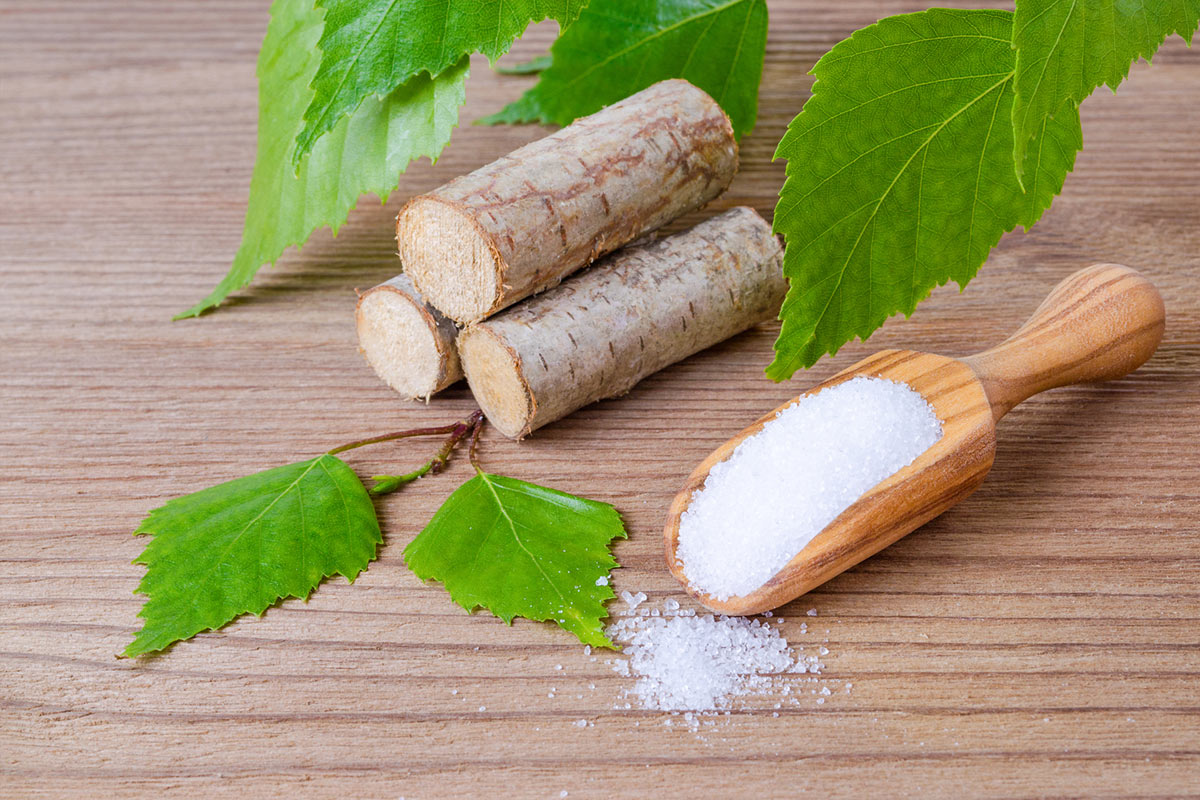Xylitol is a natural sweetener derived from birch bark. Its main difference from sugar and other sweeteners is that it prevents the development of caries - that is, it is useful for dental health. That is why xylitol is used in the production of toothpaste and chewing gum.
In addition, xylitol can withstand high temperatures and is not caramelized - which allows it to be used in yeast-free baking. Xylitol, on the other hand, affects yeast and the intestinal microflora of some people. What are its benefits and harms, what are the contraindications?
// Xylitol - what is it?
Xylitol is a sugar alcohol and a special type of natural substance with a structure that is similar at the same time to sugar (carbohydrates) and alcohol, but not chemically. In other words, xylitol is a carbohydrate-containing alcohol or a complex carbohydrate similar to plant fiber.
Despite the sweet taste, sugar alcohols (xylitol, erythrol, sorbitol) are not absorbed by the human digestive system, having a low calorie content. In addition, xylitol does not affect the enzymes of gastric juice, preventing tooth damage - due to which it is used in chewing gum.
Xylitol contains 40% less calories than regular sugar (about 10 kcal per teaspoon), and its sweetness and taste are similar to sucrose - making it one of the most popular sugar substitutes in the food industry and in nutrition for diabetics.
// Read more:
- carbohydrates - types and classification
- the best sweeteners - rating
- stevia - benefits and harms
Where is it contained?
In nature, xylitol is found in the birch bark. In significantly smaller quantities, it is found in some fruits and vegetables. At the same time, the xylitol sweetener, which can be bought at dietetic food stores, is made from xylose - it, in turn, is obtained from sunflower husk, cotton husks and corn cobs.
In the food industry, xylitol is added as a sugar substitute for the production of diabetic or low-calorie foods. The most common foods with xylitol are:
- chewing gum
- ice cream
- candy
- sugar free peanut butter
- desserts and sweets
- jams and jams
- cough syrups
- nasal sprays
- sports supplements
- toothpaste and mouthwash
Xylitol in chewing gum
Xylitol (xylitol or e967) is a sweetener that is part of most brands of chewing gum. The reason for the popularity is that despite the sweet taste, it cannot be fermented by bacteria in the human mouth - and, unlike sugar, does not harm the health of the teeth.
Scientific studies comparing sorbitol with xylitol have shown that the latter has a more pronounced effect against caries. The xylitol group showed 27% fewer caries than the sorbitol group.
// Read more:
- fast carbohydrates - list
- sugar - what is the harm?
Xylitol against caries
The main reason for the development of caries is acid, which upsets the balance of minerals in tooth enamel and makes it brittle. In turn, acid occurs as a result of the activity of bacteria that process sugar and carbohydrate foods - in simple words, after eating.
The use of xylitol, in contrast to the use of sugar and some sweeteners, inhibits the growth of the bacterial population. The acid-base balance remains normal, which reduces the risk of tooth decay. Due to the reaction to the release of saliva, xylitol moisturizes the gums, reducing the amount of plaque on the teeth.
Use in toothpaste and medicines
As a taste improver (sweetener), xylitol is included in many oral hygiene products - primarily toothpaste and rinse liquids. In addition, xylitol is used in the manufacture of medicines - cough syrups, vitamin complexes, and so on.
Xylitol lozenges are used to treat otitis media - in fact, chewing and sucking help the natural cleansing of the middle ear, while the substance itself inhibits the reproduction of pathogens.
Contraindications and harm
Xylitol is a well-studied substance with a minimal amount of side effects. Harm in the form of allergic reactions can occur exclusively in case of individual intolerance or when used in large doses.
Contraindications to the use of xylitol are colon or irritable bowel syndrome. Studies suggest that sugar alcohols affect the intestinal microflora. In fact, xylitol is able to provoke fermentation - provoking gas formation, bloating and diarrhea.
For most adults, the maximum daily dose is 20-70 g of xylitol - while one chewing gum contains less than a gram of this sugar substitute. In addition, we note that xylitol slightly increases the level of insulin in the blood - which is important for diabetics.
***
Xylitol is a natural sweetener derived from birch bark. It contains 40% less calories than regular sugar - having a similar taste. In addition, the benefits of xylitol are a positive effect on the teeth - due to which it is used in chewing gum and toothpaste.
Source: fitseven.com



